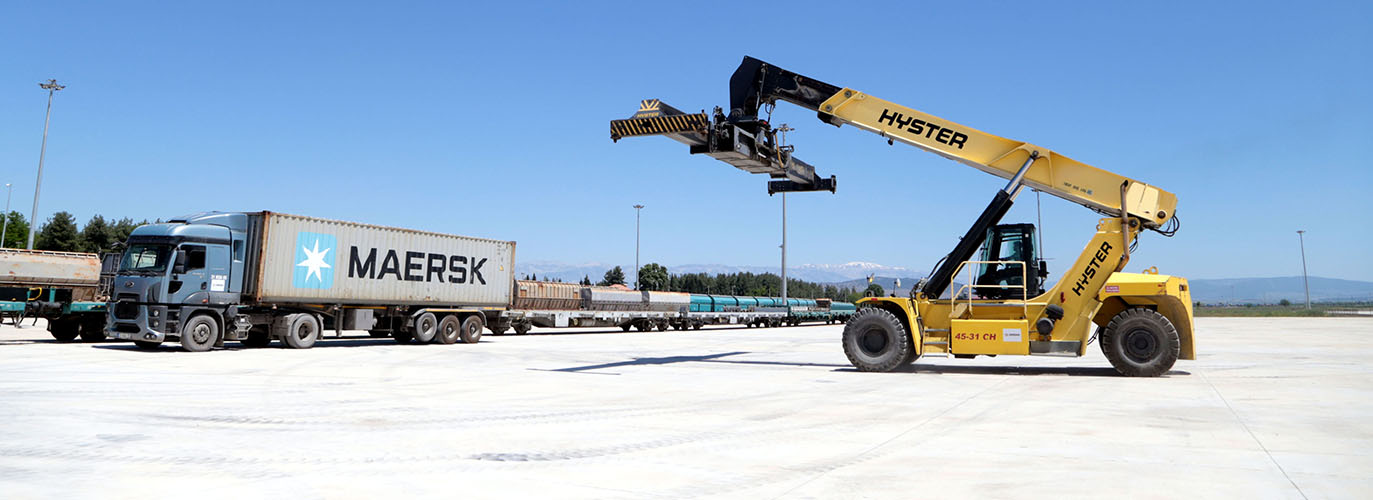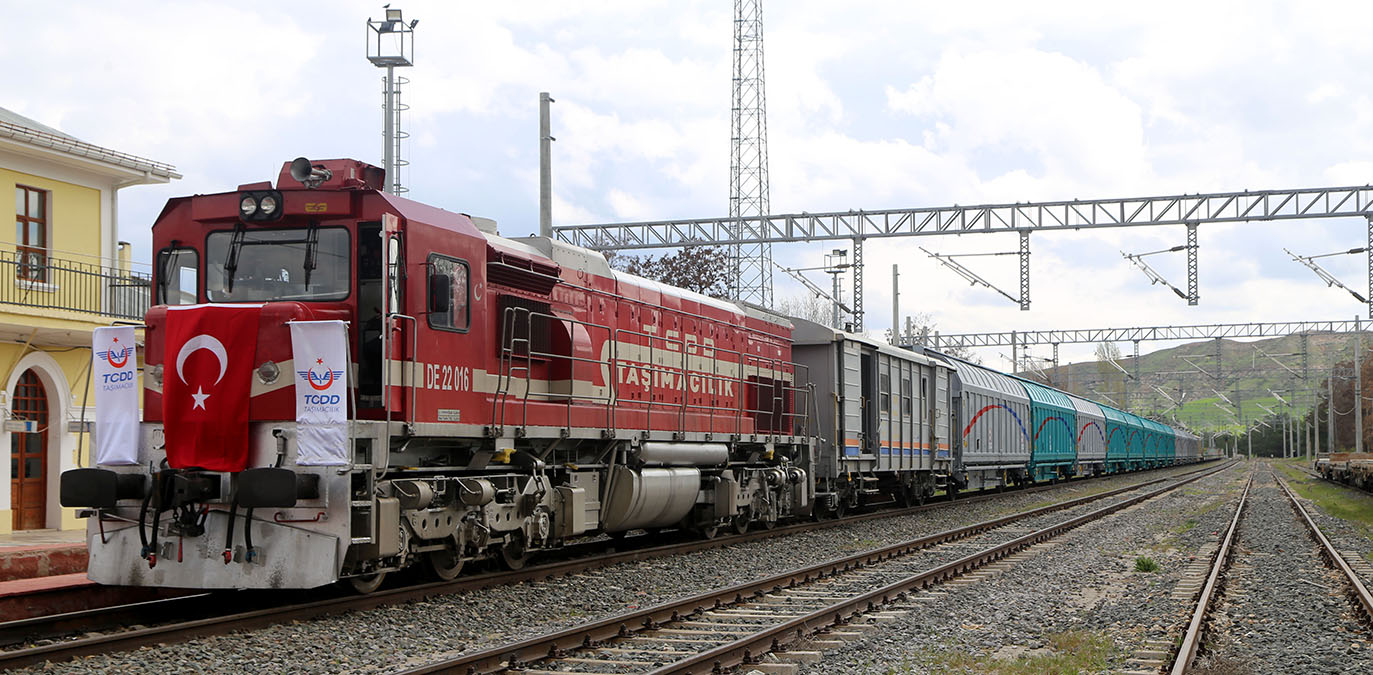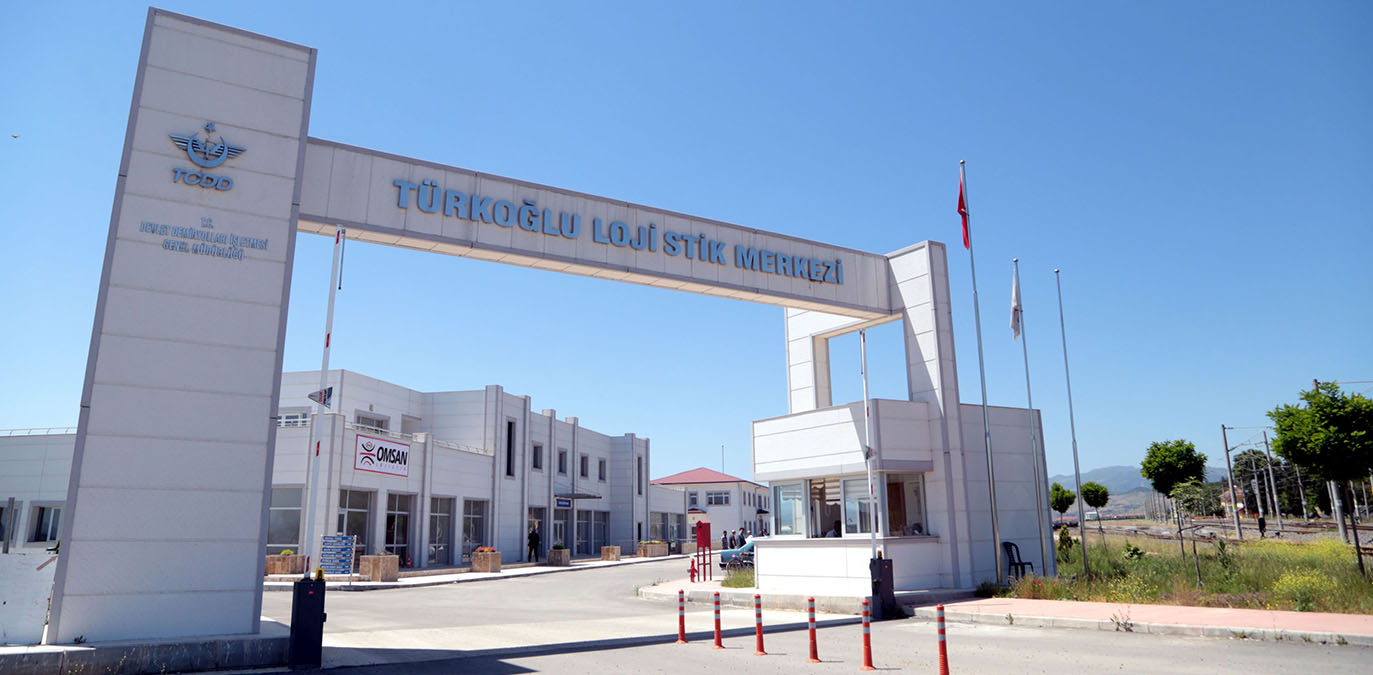25 logistics centers in global business
Turkey launched the logistics center projects for establishing an export infrastructure of $1 trillion. 9 of the 25 planned logistics centers have been put into service.

Upon the launch of all the logistics centers, the logistics industry will be embracing an additional load carrying capacity of nearly 35.6 million tons per year.
TURKEY has been setting its sights on a breakthrough in logistics to build an infrastructure supporting an export of $1 trillion in the long term. To this end, the logistics centers assumed a critical role in the export-focused logistics infrastructure. Among all transport modes, railroads took primacy within the scope of the planned investments in transport.
INTEGRATION TO THE GLOBAL SYSTEM
Situated as a prominent intersection on the route between the global centers of economy and raw materials resources, Turkey has been realizing significant investments in transport and logistics for gaining economic, political, and cultural advantages from the potential offered by its geographical position. In addition to the domestic infrastructural investments accomplished, Turkish transporters have been active in a vast geography consisting of Kazakhstan and Mongolia in the East, Portugal, and Morocco in the West, Sudan, Oman and Yemen in the South and Norway, Sweden and Finland in the North for contributing to our foreign trade.
COMBINED TRANSPORT
Ministry of Transportation and Infrastructure launched the project on logistics centers for developing the model of combined transport and providing all the services required by the logistics industry. Within the scope of this project, the establishment of the following 25 logistics centers has been planned: Halkalı (Istanbul), Yeşilbayır (Istanbul), (Çerkezköy) Tekirdağ, Köseköy (İzmit), Filyos (Zonguldak), Bozüyük (Bilecik), Hasanbey (Eskişehir), Gökköy (Balıkesir), Çandarlı (İzmir), Kemalpaşa (İzmir), Uşak, Kaklık (Denizli), Gelemen (Samsun), Türkoğlu (Kahramanmaraş), Palandöken (Erzurum), Yenice (Mersin), Kayacık (Konya), Kars, Boğazköprü (Kayseri), Karaman, İyidere (Rize), Tatvan (Bitlis), Sivas, Mardin, and Habur.
9 OPERATIONAL LOGISTICS CENTERS
The following nine logistics centers have been put into service: Uşak, Gelemen (Samsun), Kaklık (Denizli), Köseköy (İzmit), Hasanbey (Eskişehir), Gökköy (Balıkesir), Türkoğlu (Kahramanmaraş), Palandöken (Erzurum), and Halkalı (Istanbul). The construction of the logistics centers in Mersin/Yenice and Konya/Kayacık has been completed, and the centers have been rendered available for launch. The development of the logistics centers in Kars and İzmir/Kemalpaşa is in progress. As part of the Kars logistics center's constructional works, 80 percent of progress has been achieved. General Directorate of Infrastructure Investments has been conducting the construction works of the logistics center in İzmir/Kemalpaşa.

PRIVATE SECTOR'S SHARE 12.7%
Turkey launched the 'deregulation model' in rail freight cargo as of 2017 for the effective utilization of the private sector operations. Freight transported by the government-owned Turkish State Railways reached 29.3 million tons in 2019 while the cargo carried by other railway operations reached 4.2 million tons. In 2019, in total, 33.5 million tons were transported through the railroads. Rail freight cargo operations of the private sector reached 2.7 million tons in 2018 and increased to 4.2 million tons in 2019. The private sector's share in overall rail freight transport increased to 12.7% from 9.5%, and it is expected to increase in the future.
1.7 MILLION LOAD TRANSPORTED
Last year, nearly 1.7 million tons of load was transported from the nine logistics centers launched to service. When all the logistics centers become operational, Turkey's logistics industry will be gaining an additional load transport capacity of approximately 35.6 million tons every year. Furthermore, 12.8 million square meters of open space, storage area, container area, and handling area will be achieved.
NEW RAILROAD LINES
Railroads play a critical role in the investments in the logistics center. Therefore, railroads are prioritized in the planned investments within the scope of Turkey's Logistics Master Plan. In respect to the new ventures on railroads, railway lines between Gaziantep-Mersin, Eskişehir-Antalya, and Bursa-Yenişehir-Osmaneli are being built in addition to the high-speed trains running between Ankara-Sivas and Ankara-İzmir. To this end, Halkalı-Kapıkule and Konya-Karaman-Yenice railway lines will be constructed, and the third bridge on over the Bosphorus as known as the Yavuz Sultan Selim Bridge will also be built on the Gebze-Istanbul Airport-Halkalı course.
Operations on capacity enhancement are being conducted in the Kars Interchange Terminal at the Air Cargo Operation Center, Filyos Cargo Port, located at the Black Sea's exit, and the ports over Eastern Mediterranean. As part of the projects on the reinforcement of the logistics infrastructure, operations on electrification, signalization, capacity enhancement and construction of junction lines for organized industrial sites, ports and critical facilities are being conducted.

GROUNDWORK FOR BUILDING LOGISTICS CENTERS ABROAD
In addition to establishing 25 logistics centers in Turkey, the Ministry of Transportation and Infrastructure has been working on a project for building a logistics center abroad. A strategy for developing depot and fulfillment centers in countries that will boost logistics operations' efficiency has been identified. To this end, the establishment and execution of procedures in co-investment models on depot and fulfillment centers in the United Kingdom, Germany, and Russia are aimed. For further success in the transport of Turkish products to global markets. The e-commerce infrastructure of Turkey's national postal services General Directorate of Post and Telegraph Organization (PTT), will be utilized in the logistics operations to be executed depot and fulfillment centers that will be established in the countries mentioned above.


